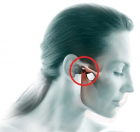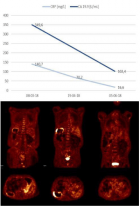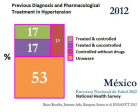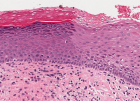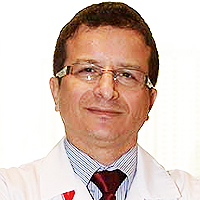Abstract
Research Article
The Outcome of an ADHD Parenting Group Training Programme (APEG) In the Peterborough Neurodevelopmental Service (NDS)
Hani Ayyash*, Michael O Ogundele, Ruth Wisbey, Emma Weisblatt, Lorraine Cuff and Venkat Reddy
Published: 27 January, 2017 | Volume 1 - Issue 1 | Pages: 013-019
ADHD is the most common neurodevelopmental disorder in children and adolescents with prevalence ranging between 5% and 12% in developed countries. There is ample evidence that carefully structured enhanced behavioural parenting programmes are useful in the management of ADHD.
We assessed the outcome of an ADHD group parenting training programme (APEG) offered between 2014 and 2015 by the Peterborough Neurodevelopmental Service (NDS) in improving the knowledge and skills of carers using a pre-/post-training intervention study.
APEG follows a Parent Advisor Model, consisting of a 6-session programme of evidence-based parenting training.
A total of 27 parents completed the 53 pre- and post-course questionnaires. The knowledge and understanding of the parents increased significantly about all aspects of ADHD diagnosis and management in response to all the 5 questions. The difference between the scores of 0 to 3 and 4 or 5 pre- and post-intervention was statistically significant (chi square 239, df 1, p value <0.01).
The study suggests that provision of a psychosocial intervention programme for parents of ADHD children through the APEG parenting training proved to be effective in significantly improving the level of knowledge and understanding of parents regarding several aspects of ADHD diagnosis, symptom identification and behaviour control.
Read Full Article HTML DOI: 10.29328/journal.hjncp.1001002 Cite this Article Read Full Article PDF
Keywords:
Psychoeducation; Childhood ADHD; Parenting programme; Non-pharmacological management
References
- National Institute for Health and Care Excellence (NICE): Attention deficit hyperactivity disorder Clinical Guideline CG72. 2008. Ref.: http://www.nice.org.uk/CG72
- American Psychiatric Association. Diagnostic and Statistical Manual of Mental Disorders. Fifth Edition. DSM-5. American Psychiatric Publishing ed. 2013.
- The ICD-10 classification of mental and behavioral disorders: clinical descriptions and diagnostic guidelines 1992; Diagnostic criteria for research. 1993; Geneva.
- Cortese The neurobiology and genetics of Attention-Deficit/Hyperactivity Disorder (ADHD): what every clinician should know. Eur J Paediatr Neurol. 2012; 16: 422-433. Ref.: https://goo.gl/ogtSTF
- Biederman J, Faraone SV. Attention-deficit hyperactivity disorder. Lancet 2005; 366: 237-248. Ref.: https://goo.gl/ur4ttp
- Faraone SV, Biederman J, Mick E. The age-dependent decline of attention deficit hyperactivity disorder: a meta-analysis of follow-up studies. Psychol Med. 2006; 36: 159-165. Ref.: https://goo.gl/idQrvS
- Simon V, Czobor P, Balint S, Meszaros A, Bitter I. Prevalence and correlates of adult attention-deficit hyperactivity disorder: meta-analysis. Br J Psychiatry. 2009; 194: 204-211. Ref.: https://goo.gl/e6QhQN
- Whitney RVSmith G. Emotional Disclosure through Journal Writing: Telehealth Intervention for Maternal Stress and Mother-Child Relationships. J Autism Dev Disord. 2015; 45: 3735-3745. Ref.: https://goo.gl/IEyicZ
- Aghebati A, Gharraee B, Hakim Shoshtari M, Gohari MR. Triple p-positive parenting program for mothers of ADHD children. Iran J Psychiatry Behav Sci. 2014; 8: 59-65. Ref.: https://goo.gl/KpDSfi
- Fabiano GA, Pelham WE Jr, Coles EK, Gnagy EM, Chronis-Tuscano A, et al. A meta-analysis of behavioral treatments for attention-deficit/hyperactivity disorder. Clin Psychol Rev. 2009; 29: 129-140. Ref.: https://goo.gl/EcV0RT
- Daley D, Van der Oord S, Ferrin M, Danckaerts M, Doepfner M, et al. European ADHD Guidelines Group. Behavioral interventions in attention-deficit/hyperactivity disorder: a meta-analysis of randomized controlled trials across multiple outcome domains. J Am Acad Child Adolesc Psychiatry. 2014; 53: 835-847. Ref.: https://goo.gl/OYWpi8
- Sonuga-Barke EJ, Brandeis D, Cortese S, Daley D, Ferrin M, et al. European ADHD Guidelines Group. Nonpharmacological interventions for ADHD: systematic review and meta-analyses of randomized controlled trials of dietary and psychological treatments. Am J Psychiatry. 2013; 170: 275-289. Ref.: https://goo.gl/PK2knU
- Hinojosa MS, Hinojosa R, Fernandez-Baca D, Knapp C, Thompson LA. Parental strain, parental health and community characteristics among children with attention deficit hyperavtivity disorder. Acad Pediatr. 2012; 12: 502-508. Ref.: https://goo.gl/keTRLj
- Theule J, Wiener J, Tannock R, Jenkins J M. Parenting stress in families of children with ADHD: a meta-analysis. J Emot Behav Disord. 2013; 21: 3-17.
- Fabiano GA, Schatz NK, Aloe AM, Chacko A, Chronis-Tuscano A. A systematic review of meta-analyses of psychosocial treatment for attention-deficit/hyperactivity disorder. Clin Child Fam Psychol Rev. 2015; 18: 77-97. Ref.: https://goo.gl/SjnRqg
- Young S, Amarasinghe JM. Practitioner Review: Non-pharmacological treatments for ADHD: A lifespan approach. J Child Psychol Psychiatry. 2010; 51: 116-133. Ref.: https://goo.gl/MSQ7el
- Denton R, Lievesley A, Cook E, Htin HK, Atkinson E. Evaluation of a post-diagnosis ADHD parenting programme. ADHD in Practice. 2015; 7: 4-7.
- Jones K, Daley D, Hutchings J, Bywater T, Eames C. Efficacy of the incredible years basic parent training programme as an early intervention for children with conduct problems and ADHD. Child Care Health Dev. 2007; 33: 749-75. Ref.: https://goo.gl/5wKXLI
- Montoya A, Colom F, Ferrin M. Is psychoeducation for parents and teachers of children with ADHD efficacious? A systematic literature review. Eur Psychiatry. 2011; 26:166-175. Ref.: https://goo.gl/wZEhe0
- Montoya A, Hervás A, Fuentes J, Cardo E, Polavieja P, et al. Cluster-randomized. Controlled 12-month trial to evaluate the effect of a parental psychoeducation program on medication persistence in children with attention-deficit/hyperactivity disorder. Neuropsychiatr Dis Treat. 2014; 10: 1081-1092. Ref.: https://goo.gl/nSAvmj
- Dawson AE, Wymbs BT, Marshall SA, Mautone JA, Power TJ. The Role of Parental ADHD in Sustaining the Effects of a Family-School Intervention for ADHD. J Clin Child Adolesc Psychol. 2016; 45: 305-319. Ref.: https://goo.gl/OS4ss4
- Ferrin M, Moreno-Granados JM, Salcedo-Marin MD, Ruiz-Veguilla M, Perez-Ayala V, et al. Evaluation of a psychoeducation programme for parents of children and adolescents with ADHD: immediate and long-term effects using a blind randomized controlled trial. Eur Child Adolesc Psychiatry. 2014; 23: 637-647. Ref.: https://goo.gl/NUqkmd
Similar Articles
-
The Outcome of an ADHD Parenting Group Training Programme (APEG) In the Peterborough Neurodevelopmental Service (NDS)Hani Ayyash*,Michael O Ogundele,Ruth Wisbey,Emma Weisblatt,Lorraine Cuff,Venkat Reddy. The Outcome of an ADHD Parenting Group Training Programme (APEG) In the Peterborough Neurodevelopmental Service (NDS). . 2017 doi: 10.29328/journal.hjncp.1001002; 1: 013-019
Recently Viewed
-
Why Down-managing Backlog Forensic DNA Case Entries MattersJH Smith*, JS Horne. Why Down-managing Backlog Forensic DNA Case Entries Matters. J Forensic Sci Res. 2024: doi: 10.29328/journal.jfsr.1001056; 8: 001-008
-
Environmental Factors Affecting the Concentration of DNA in Blood and Saliva Stains: A ReviewDivya Khorwal*, GK Mathur, Umema Ahmed, SS Daga. Environmental Factors Affecting the Concentration of DNA in Blood and Saliva Stains: A Review. J Forensic Sci Res. 2024: doi: 10.29328/journal.jfsr.1001057; 8: 009-015
-
What to do from the Emergency Room in Case of Suspected Chemical SubmissionSuárez D*, Pascual E, Valdes R, Diego C, Munera R. What to do from the Emergency Room in Case of Suspected Chemical Submission. J Forensic Sci Res. 2024: doi: 10.29328/journal.jfsr.1001058; 8: 016-018
-
Forensic Analysis of WhatsApp: A Review of Techniques, Challenges, and Future DirectionsNishchal Soni*. Forensic Analysis of WhatsApp: A Review of Techniques, Challenges, and Future Directions. J Forensic Sci Res. 2024: doi: 10.29328/journal.jfsr.1001059; 8: 019-024
-
Review on Forensic Analysis of Microbiota in HumanSuman Singh*, Jiya Agarwal*. Review on Forensic Analysis of Microbiota in Human. J Forensic Sci Res. 2024: doi: 10.29328/journal.jfsr.1001060; 8: 025-027
Most Viewed
-
Evaluation of Biostimulants Based on Recovered Protein Hydrolysates from Animal By-products as Plant Growth EnhancersH Pérez-Aguilar*, M Lacruz-Asaro, F Arán-Ais. Evaluation of Biostimulants Based on Recovered Protein Hydrolysates from Animal By-products as Plant Growth Enhancers. J Plant Sci Phytopathol. 2023 doi: 10.29328/journal.jpsp.1001104; 7: 042-047
-
Sinonasal Myxoma Extending into the Orbit in a 4-Year Old: A Case PresentationJulian A Purrinos*, Ramzi Younis. Sinonasal Myxoma Extending into the Orbit in a 4-Year Old: A Case Presentation. Arch Case Rep. 2024 doi: 10.29328/journal.acr.1001099; 8: 075-077
-
Feasibility study of magnetic sensing for detecting single-neuron action potentialsDenis Tonini,Kai Wu,Renata Saha,Jian-Ping Wang*. Feasibility study of magnetic sensing for detecting single-neuron action potentials. Ann Biomed Sci Eng. 2022 doi: 10.29328/journal.abse.1001018; 6: 019-029
-
Pediatric Dysgerminoma: Unveiling a Rare Ovarian TumorFaten Limaiem*, Khalil Saffar, Ahmed Halouani. Pediatric Dysgerminoma: Unveiling a Rare Ovarian Tumor. Arch Case Rep. 2024 doi: 10.29328/journal.acr.1001087; 8: 010-013
-
Physical activity can change the physiological and psychological circumstances during COVID-19 pandemic: A narrative reviewKhashayar Maroufi*. Physical activity can change the physiological and psychological circumstances during COVID-19 pandemic: A narrative review. J Sports Med Ther. 2021 doi: 10.29328/journal.jsmt.1001051; 6: 001-007

HSPI: We're glad you're here. Please click "create a new Query" if you are a new visitor to our website and need further information from us.
If you are already a member of our network and need to keep track of any developments regarding a question you have already submitted, click "take me to my Query."






